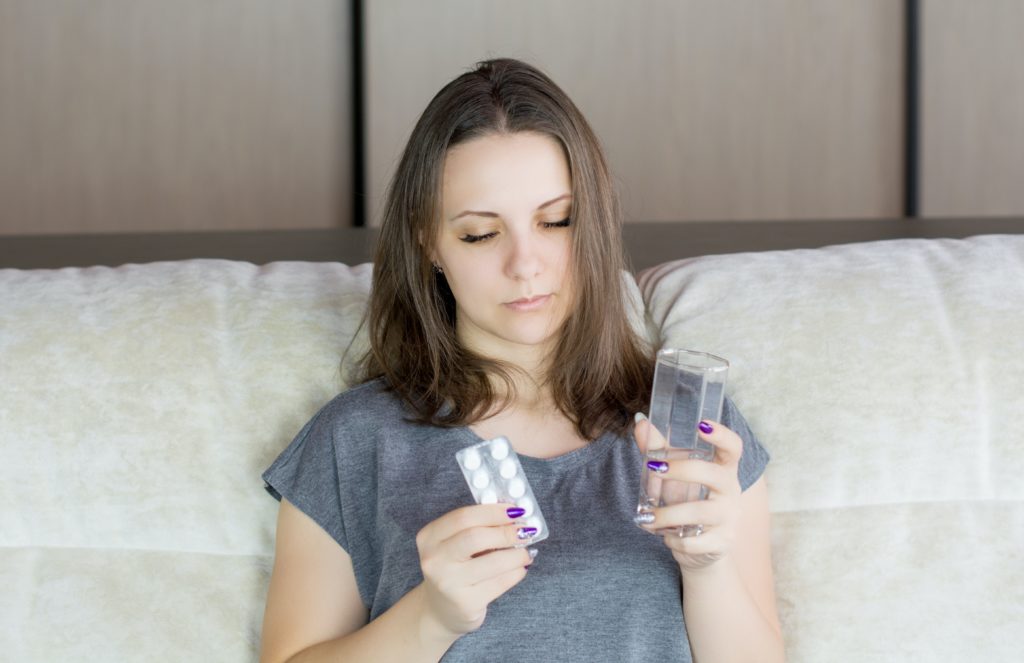What is Lyrica?
Lyrica (pregabalin) is an FDA-approved anti-seizure medication prescribed to treat several conditions including epilepsy, fibromyalgia, and nerve pain. It is a commonly prescribed pain medication in the United States, with over 64 million prescriptions dispensed in 2016. Lyrica slows the brain impulses associated with seizures by calming hyperactive neurons and treats pain from nerve damage by altering the chemicals involved in pain signals. When a person becomes dependent on this drug and tries to stop its use may experience Lyrica withdrawal symptoms.
Some people who take Lyrica feel that the medication induces a state similar to being drunk, while other common side effects include:

- Dizziness
- Fatigue
- Impaired balance or coordination
- Blurred vision
- Tremor
- Lethargy
- Weight gain
- Memory problems
- Euphoria
Lyrica Abuse
Lyrica has a high potential for abuse and evidence suggests that some patients develop addictive behaviors toward the drug. A recent study published in the International Journal of Mental Health and Addiction reports that most people taking Lyrica were unaware of the adverse health consequences associated with its abuse.
There has been a rapid increase in the recreational abuse of Lyrica in recent years. Users find that they can experience euphoria and feelings of dissociation when they exceed normal therapeutic dosages or use alternative routes of administration, such as inhalation or injection. When they try to stop its use, may experience severe Lyrica withdrawal symptoms.
A study published in Emergency Medicine Journal reports a rising number of patients arriving at emergency rooms with adverse symptoms stemming from Lyrica abuse. Several patients presented with seizures while some required intubation and ventilation before being admitted to the intensive care unit. There is also evidence that taking Lyrica together with other drugs increases the risk of mortality. One study found that Lyrica significantly increased the risk of acute overdose death when combined with opiates such as heroin.

Lyrica Withdrawal and Detox Symptoms
In many cases, you may become dependent on Lyrica and experience withdrawal effects after using the drug for an extended period. Those abusing the drug should slowly taper off Lyrica to prevent the more severe side effects of withdrawal, which can be quite uncomfortable. Sometimes these symptoms may be life-threatening and require medical care.
Signs and symptoms of Lyrica withdrawal include:
- Headaches
- Mood changes
- Agitation
- Depression
- Anxiety
- Confusion
- Suicidal thoughts
- Nausea
- Sweating
- Diarrhea
- Increased heart rate
- Cravings for the medication
- Insomnia
- Seizures
Immediate Lyrica withdrawal symptoms usually last for about 1-2 days, while residual symptoms can last for several weeks.
Complications From Lyrica Withdrawal & Detox
Lyrica withdrawal symptoms can cause complications—some of which can be life-threatening.
- Overdose. Similar to other drugs, rapidly stopping use of Lyrica can lead to strong cravings and relapse, which can increase the likelihood of overdose.
- Suicidal thoughts. In addition, depression and suicidal thoughts or behavior are common psychological withdrawal symptoms that can be dangerous. Moreover, feelings of anxiety and depression increase the chances of relapse and overdose.
- Dehydration. Diarrhea, nausea, vomiting, and increased sweating can lead to dehydration or electrolyte imbalance.
- Heart problems. Rapid heartbeat or palpitations can lead to cardiac issues that can become life-threatening.
- Seizures. Since Lyrica can be used to manage seizures, abruptly stopping the medication can lead to a recurrence of seizures, which can be fatal.
Lyrica Withdrawal Timeline
Acute Lyrica withdrawal symptoms last for approximately 1-2 days when the use of the drug is suddenly stopped. However, residual symptoms may remain for several weeks.
Users should slowly taper off Lyrica under the care of a medical professional to ease the intensity of withdrawal symptoms. As mentioned above, the duration of detox may be more pronounced or prolonged in people who have used large amounts or have taken Lyrica over an extended period.
Medications for Lyrica Withdrawal & Detox
A lot of people wonder how to stop taking Lyrica but Lyrica withdrawal is fairly new to the addiction treatment community, and a formal treatment protocol has not been established.
According to addiction treatment professionals, Lyrica withdrawal can be safely managed by slowly decreasing the dose over a while to reduce the amount and intensity of Lyrica withdrawal symptoms (a process known as tapering). Additionally, treatment professionals may use certain medications to manage some of the specific symptoms of Lyrica withdrawal.
- Dexmedetomidine is another prescription medication with similar effects to clonidine. Because of its high cost and marked hypotensive potential, dexmedetomidine is considered a second-line medication only if clonidine is not available or does not have the desired effects.
- Clonidine is used to treat high blood pressure, but it also works as a mild sedative. It has been used to manage symptoms of alcohol, opioid, and Lyrica withdrawal and can help to manage the agitation due to withdrawal.
At this point, neither of these medications have been studied enough to be considered evidence-based medication-assisted treatments. Medical detox professionals may prescribe other medications to treat symptoms of Lyrica withdrawal.
- Seizures: If someone was prescribed Lyrica for seizures or has experienced seizures as part of the withdrawal process, it is essential to prescribe anti-seizure medication to ensure continued health and safety.
- Gastrointestinal: Nausea can be managed with specific medications, such as Zofran. Diarrhea or upset stomach can be treated with Imodium.
- Insomnia: Difficulty falling or staying asleep is a common issue with Lyrica withdrawal. Medical detox professionals may prescribe sleep aids that are not habit-forming and have a low potential for abuse, such as trazodone.

Detox Treatment Options
Participating in professional detox treatment can ensure a safe and comfortable withdrawal period to begin the recovery process. Detox or withdrawal should be followed by participation in a formal addiction treatment program to increase the likelihood of long-term sobriety.
Participating in a formal Lyrica addiction treatment program can help to strengthen and solidify recovery, aid in the development of a sober support network, develop a sense of accountability, and help a person learn and practice relapse prevention techniques that help maintain long-term sobriety. Formal treatment also provides peer support, professional therapeutic techniques, and medical or psychiatric support services.
Addiction is a different experience for each person, and various types of treatment are available. Treatment includes the following:

- Detox facilities: These clinics provide a safe, medically supervised environment where the person can detox safely from Lyrica. Medical and counseling professionals are on hand to provide support for the duration of detox and monitor people for risks or complications.
- Inpatient treatment: Treatment occurs in a residential facility where recovering Lyrica users stay for varying lengths of time, from a period of 28 days to 3 months. The facility provides a safe and structured sober environment where people receive intensive group and individual therapy sessions, as well as medical and psychiatric monitoring if necessary.
- Outpatient treatment: Outpatient substance abuse recovery programs allow people to take care of demands at work, school, and home while receiving top-quality treatment in both group and individual formats. Depending on the type of outpatient program, access to psychiatric and medical support may also be provided.
- Partial hospitalization: This type of treatment provides medical care and intensive individual and group therapy sessions while allowing people to live outside of the facility and still attend to family and home responsibilities. Partial hospitalization usually requires more of a time commitment than standard outpatient care.
Reclaim Your Life From Lyrica Withdrawal & Addiction
Lyrica addiction is a condition that can cause major health, social and economic problems that should not be taken lightly. We Level Up California can provide you, or someone you love, the tools to recover from addiction with professional and safe detox, that will help you ease symptoms from Lyrica withdrawal. Feel free to call us to speak with one of our counselors. We can inform you about this condition by giving you relevant information. Our specialists know what you are going through. Please know that each call is private and confidential.
Sources
[1] U.S. National Library of Medicine. (2016). Pregabalin.
[2] Toth, C. (2014). Pregabalin: Latest safety evidence and clinical implications for the management of neuropathic pain. Therapeutic Advances in Drug Safety, 5(1), 38-56.
[3] National Institute on Drug Abuse. (2012). Principles of drug addiction treatment: A research-based guide (3rd edition).